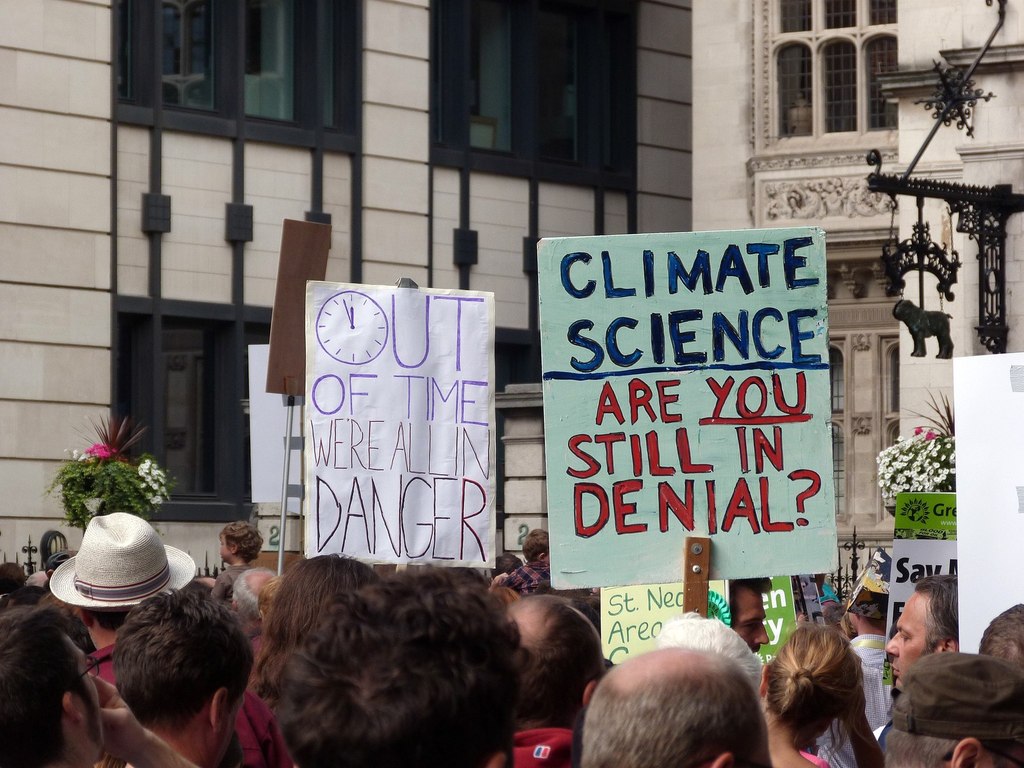According to the “Climate of Misinformation: Ranking Big Tech” report published in September 2023 by the Center for Accountability and Digital Democracy (CAAD), misinformation around climate change, fueled by the fossil fuel industry, has hindered climate action for decades. In 2022, the International Governmental Panel on Climate Change highlighted the issue of Big Tech’s role in the resurgence of climate denial. The United Nations, in June 2023, stated that misinformation about the climate crisis is delaying essential actions for a sustainable future.
Despite platforms like Google, in 2021, pledging to stop monetizing climate denial content on YouTube, the spread of false climate narratives persists. Pinterest, in 2022, took a significant step by banning climate misinformation in both organic content and advertisements. However, the CAAD report indicates that there are considerable gaps in how policies targeting climate misinformation are implemented.
Platforms like Meta, TikTok, Twitter/X, YouTube, and Pinterest have been evaluated based on their efforts to curb climate misinformation. Pinterest stands out, leading the industry with policies that effectively mitigate the spread of climate misinformation. Platforms like YouTube, Meta, and TikTok have made commitments, but independent research suggests that their policy enforcement is inconsistent. Twitter/X, on the other hand, barely has clear policies addressing climate misinformation and lacks transparency mechanisms.
A concerning revelation from the report is that four out of five platforms do not possess a comprehensive definition of climate misinformation. Greenwashing, a deceptive practice that gives an unjustified green image to a product or company, is also inadequately addressed by most platforms. While TikTok has shown intentions, no platform has provided evidence of uniformly enforcing climate misinformation policies across different languages.
Big Tech is clearly failing to stop the extensive climate misinformation that threatens climate action. A toxic and fossil-fueled minority is drowning out the voices of science and reason and social media platforms are complicit. The scores in this report are unacceptable, especially in the case of Twitter/X, and should be a wake up call for platforms and regulators to finally take climate misinformation seriously.
Erika Seiber, Climate Disinformation spokesperson at Friends of the Earth
Similar Posts
Alarmingly, four out of five platforms either have convoluted privacy policies or do not explicitly prevent the sale or sharing of personal data. There’s a notable absence of algorithmic reporting from all platforms, and most lack insights on misinformation trends. Platforms like Facebook’s Climate Science Center have been found ineffective in countering misinformation.
The assessment methodology involved a 21-point system, considering platforms’ public guidelines, terms of service, and press releases up to August 24, 2023. The acquisition of Twitter by Elon Musk has introduced uncertainty regarding which policies are still in effect. Platforms were approached for comments on their policies; however, most redirected to their public resources or general misinformation guidelines.
The litany of climate disasters unfolding in the US and around the world underscores the urgency of taking action to phase out fossil fuels like oil and gas. Social media platforms have fostered a poisonous spread of disinformation and misinformation that has stalled the necessary action to prevent the climate crisis from becoming an irreversible catastrophe. As we approach COP28, a climate conference being led by the CEO of a major oil company, platforms need to step up and tackle climate misinformation head on before it’s too late.
Charlie Cray, Senior Strategist at Greenpeace
Pinterest’s proactive approach is evident as searches related to climate denial are redirected to positive content or flagged for violating community guidelines. TikTok, on the other hand, blocks search terms related to climate denial, emphasizing user safety and adherence to community guidelines. While some platforms have policies against monetizing climate misinformation, the definition often excludes greenwashing. Privacy policies of platforms like Instagram, TikTok, and YouTube have been rated as “difficult” or “very difficult” to read. Only Pinterest and Twitter/X’s privacy policies were found to be relatively user-friendly.
The sale or sharing of personal data to potentially harmful entities, such as fossil fuel groups, remains a gray area for many platforms. The report underscores the need for platforms to revisit their rankings and refine their policies to halt the spread of climate denial and misinformation. As we navigate the climate crisis, the role of Big Tech in shaping narratives and influencing public opinion remains crucial, demanding immediate and effective action.


















